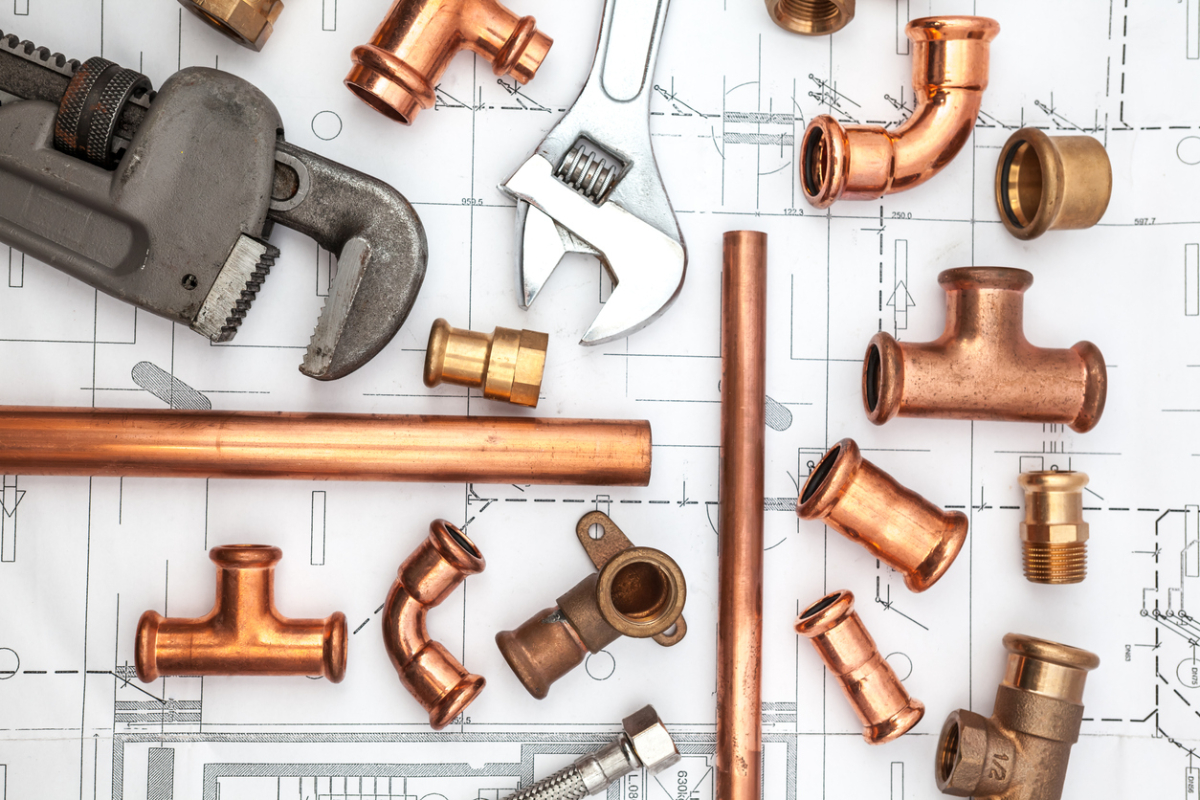Residential pipes are often not at the top of homeowners’ minds unless there is an issue. While it is great that most piping systems operate effectively, this is not always the case. Regular maintenance and care are necessary to ensure your pipes last. When properly cared for, residential plumbing systems can last decades. Additionally, choosing the right material for your home’s pipes is key. Consider the following types of pipes used in residential plumbing.
Types of Pipes Used in Residential Plumbing
The material of the pipes in your home matters. There are several different types of materials to choose from. Below, you find the most common types of pipes used in residential plumbing.
Copper Pipes
Copper pipes are the top material choice for residential plumbing. The material is highly durable and resistant to corrosion. In fact, they can last more than 50 years if properly maintained. Copper can withstand corrosion, which is great for water supply lines. Copper can withstand extreme temperatures, making it a great option for both hot and cold water lines. They are also resistant to bacteria, so they are a safe drinking water option.
Due to their major benefits, copper piping is more expensive than alternative materials. It is also slightly more complex to install. Because it is copper, it requires soldering and fittings. This makes it more labor intensive and can add to the costs associated with repiping services. While the costs are greater upfront, they are offset by the longevity of copper piping.
PEX Pipes
PEX pipes are made from cross-linked polyethylene. They are a highly versatile piping material. They are one of the most common materials used in modern residential plumbing as they are affordable. PEX pipes are easy to install by repiping specialists in Los Angeles as they are flexible. In addition to their flexibility, they are highly durable. This makes them a great option for retrofits and new construction. They are also resistant to corrosion, scale, and chlorine. This makes them a great option if you live in a cold area, as they are not as likely to burst in cold conditions. They can also be used for both hot and cold water lines.
PEX pipes offer several benefits, but there are some factors to consider. The material can degrade when exposed to sunlight. Because of this, they require proper insulation if they are used outdoors. They also require special fittings for installation. This can increase your overall piping costs.
PVC Pipes
PVC pipes are made from polyvinyl chloride. They are unknown for how easy and smooth they are to install. This is why they are commonly used in residential plumbing systems. They are a cost-effective solution compared to alternative materials, as they are lightweight, easy to handle, and resistant to corrosion. This is why they are often used in waste and sewage systems.
PVC pipes are a great option for residential piping systems. However, there are some drawbacks to consider. PVC is not suitable for all temperatures. They can warp and degrade in high temperatures. This is why they are not used to carrying hot water. In addition, they are not as durable as alternative materials. They are resistant to corrosion, but they can crack over time. This is often due to high temperatures and natural wear and tear.
Repiping Specialists in Los Angeles
If you have not had your residential pipes checked in the last year, contact the team at Henrik Plumbing. They are the top repiping specialists in the area. They have helped countless homeowners install and maintain effective plumbing systems that last. Contact their team today for more information!
